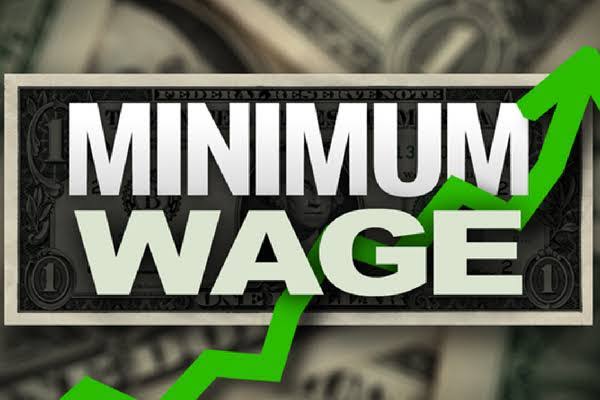Global crude oil prices slid on Tuesday, intensifying concern over Nigeria’s 2025 budget projections, which were anchored on ambitious assumptions for output and pricing.
Economists caution that the downturn could widen the fiscal deficit and strain government spending plans.
Market figures showed Brent crude falling by 1.01 per cent to $65.93 per barrel, while West Texas Intermediate (WTI) dropped 1.23 per cent to close at $62.64 per barrel. Nigeria’s Bonny Light crude recorded a sharper decline of 2.84 per cent, ending the day at $78.62 per barrel. The OPEC basket, however, posted a modest gain of 1.19 per cent at $68.64 per barrel.
The fall in prices followed renewed diplomatic moves involving the United States, Russia, and Ukraine, which analysts fear may lead to an easing of sanctions on Russian crude, thereby flooding the market with additional supply.
U.S. President Donald Trump said after meeting European and Ukrainian leaders that he had spoken directly with Russian President Vladimir Putin, a development that unsettled energy markets worldwide.
Nigeria’s 2025 budget is predicated on oil production of 2.06 million barrels per day at an average price of $74 per barrel. Analysts believe these benchmarks are overly optimistic.
Group Chief Executive Officer of Carrier Assets Management Limited, Mr Johnson Chukwu, told NewsDirect that the budget parameters were “too ambitious given prevailing market realities.”
“We have seen consistent improvement in crude production in the past two months, averaging 1.8 million barrels per day, but that still falls short of the 2.06 million barrels benchmarked. Coupled with unpredictable price swings influenced by global politics, it is obvious Nigeria will struggle to meet its projected oil revenue,” Chukwu explained.
He added that while production had enjoyed relative stability, revenue expectations remain under pressure from volatility in the international crude market. “If we can at least sustain production levels close to 2.06 million barrels daily, then the only major risk would be price variances. But as it stands, both factors are working against us,” he cautioned.
Beyond oil, commodities delivered mixed outcomes. Gold rose 0.21 per cent to $3,365.70 per ounce, while silver closed at $37.62, copper at $450.55, and platinum at $1,319.45. Agricultural commodities underperformed as corn slipped to $403, wheat dipped to $518.25, and cocoa dropped to $8,178, though cotton edged slightly higher at $67.60.
Global equities also faced headwinds after a tech-led sell-off on Wall Street. MSCI’s broadest index of Asia-Pacific shares outside Japan lost 1 per cent, Eurostock 50 futures shed 0.64 per cent, S&P 500 futures slipped 0.27 per cent, and NASDAQ futures declined 0.44 per cent. In Asia, Japan’s Nikkei fell 1.7 per cent, while Hong Kong’s Hang Seng weakened by 1.3 per cent.
Analysts warn that weaker oil revenues could worsen Nigeria’s fiscal challenges, particularly in debt servicing and foreign exchange stability. Chukwu stressed that oil and gas exports remain Nigeria’s most dependable source of foreign currency inflows.
“There is no immediate substitute for foreign exchange earnings from oil. Internally generated revenues have improved in recent months, but they cannot offset the liquidity needed to stabilise the naira or meet external debt obligations,” he said.
On diversification, Chukwu noted the Nigeria Export Promotion Council’s (NEPC) recently reported $3.2 billion in non-oil export earnings, led by fertiliser and urea from domestic refineries. He described it as encouraging but called for deeper value addition across industries.
“We are seeing some benefits from the Dangote Refinery in terms of by-products, but this must be extended to other sectors. For instance, in solid minerals, Nigeria exports raw granite and imports processed granite at a premium. This cycle undermines value creation and foreign exchange gains,” he observed.
Agriculture remains another concern. Despite contributing about 23 per cent to GDP, the sector grew by only 0.07 per cent in the last quarter, showing stagnation. Experts cite insecurity and low yields as the most pressing constraints.
“Most of our arable land is either uncultivated or producing far below international standards. Improving seed quality, mechanisation, and land access are urgent needs. Without resolving insecurity and land-use bottlenecks, the sector cannot deliver quick wins,” Chukwu said.
He also welcomed improved coordination between fiscal and monetary authorities, including the Central Bank of Nigeria (CBN), Federal Inland Revenue Service (FIRS), and the Ministry of Finance, describing it as “an improvement from the silo approach of the past administration.”
“Policy harmonisation is critical. The fiscal and monetary arms must align on whether to prioritise growth, employment, or inflation control. Conflicting policies have undermined results in the past. A unified direction is the only way forward,” he remarked.
Looking ahead, stakeholders insist that Nigeria must urgently strengthen value addition in agriculture and minerals. Chukwu cited cassava as an example, arguing that exporting it raw brings limited returns, whereas starch and other derivatives command higher global demand.
“Beneficiation is the key. Whether it is cassava, palm oil, or cocoa, adding value before export will significantly raise our foreign exchange inflows. As long as we export unprocessed commodities, our earnings will remain unimpressive,” he concluded.
With oil prices under pressure and global markets unsettled, Nigeria faces renewed urgency to boost domestic productivity, deepen diversification, and safeguard its fragile fiscal framework.






